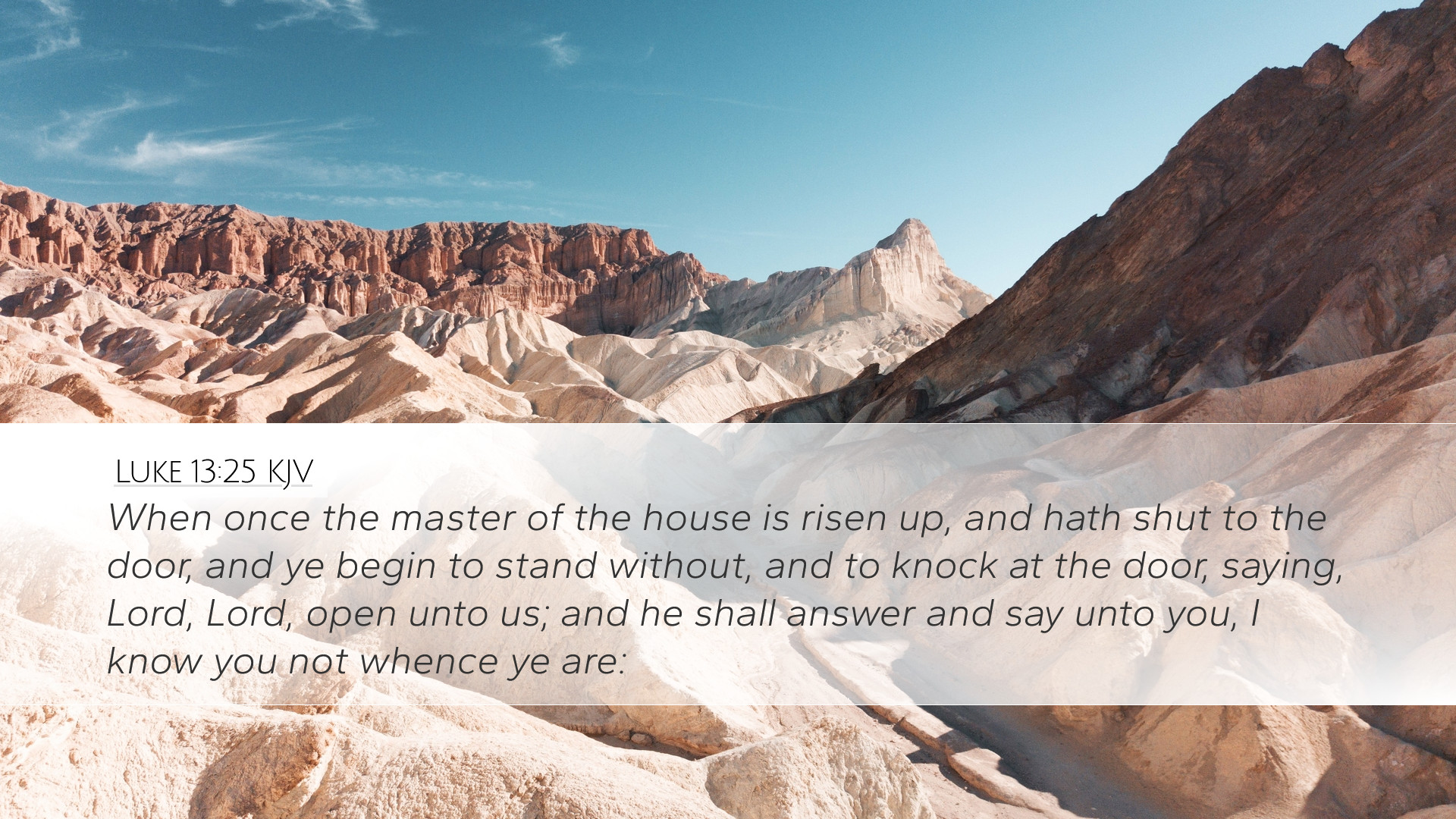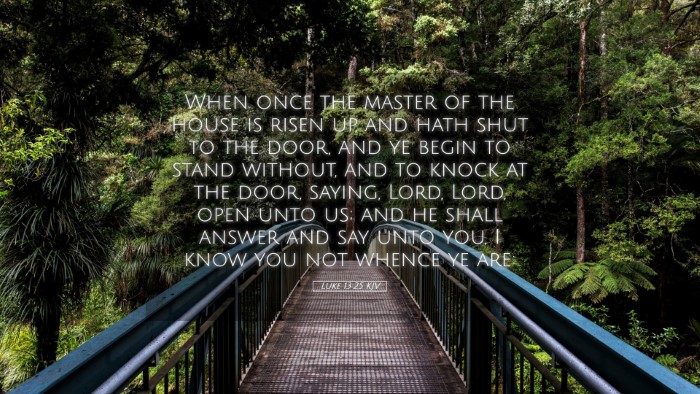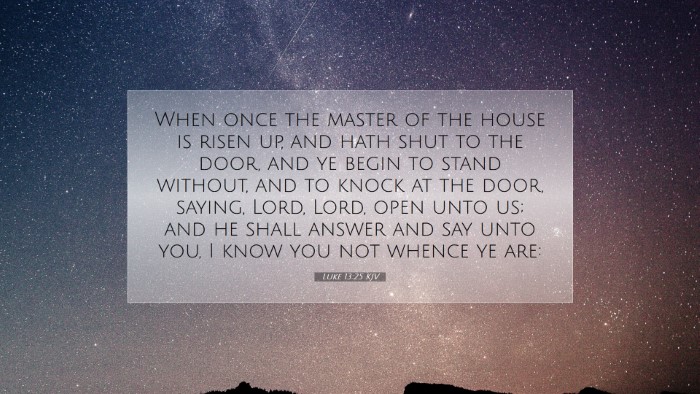Commentary on Luke 13:25
Luke 13:25 states: "When once the master of the house is risen up, and hath shut to the door, and ye begin to stand without, and to knock at the door, saying, Lord, Lord, open unto us; and he shall answer and say unto you, I know you not whence ye are."
Introduction
This verse is part of a larger discourse where Jesus warns about the importance of entering through the narrow door (Luke 13:24). The imagery used here is rich and filled with theological significance, illustrating the finality of the divine judgment and the urgency with which one must respond to God's call.
The Master of the House
The figure of the "master of the house" represents Christ Himself, who exercises authority over His kingdom. According to Matthew Henry, the master signifies a sense of sovereignty and governance, reflecting God's ultimate control over who enters His kingdom. Those who seek entrance must understand that the door becomes closed at a certain point, at which time their opportunities to gain access are irrevocably lost.
The Shut Door
The closing of the door signifies a definitive moment of decision. Albert Barnes emphasizes this point, indicating that the closing of the door represents the transition from opportunity to judgment. It is a vivid reminder of the importance of responding to divine invitations while there is still time:
- Awareness of Time: The Master rising signifies the end of an era for those outside, emphasizing the idea that time is limited and finite.
- Judgment: The act of shutting the door signifies God's judgment where the opportunity to enter His presence is no longer available.
The Pleas of the Rejecters
Those standing outside, knocking at the door, represent individuals who, at the last moment, realize their need for salvation and communion with God. Adam Clarke notes that there is something painfully poignant about the image of people calling out "Lord, Lord," reflecting a presumed relationship with Him, only to find out they are unknown to Him:
- False Assumptions: Their appeal of "Lord, Lord" indicates that they have once presumed to be part of His household, illustrating a common misconception among those who think they are secure in their salvation without true faith.
- Desperation: The act of knocking symbolizes desperation and regret; they recognize too late the importance of the relationship that they neglected to cultivate.
The Master’s Response
When the master responds, "I know you not whence ye are," it illustrates a profound theological truth regarding the nature of recognition in the realm of salvation. Matthew Henry comments that this highlights God's intimate knowledge of His true followers, contrasting it with a mere outward association:
- True Relationship: Knowledge here implies a deep relational aspect, suggesting that mere acquaintance is not enough to secure a place in the Kingdom.
- Judgment on False Security: Those outside mistakenly believed their external claims were sufficient; this response reveals the peril of relying on tradition over transformation.
Theological Implications
This passage conveys several crucial theological themes essential for pastors and theologians alike:
- The Finality of Divine Judgment: The closing of the door serves as a sobering reminder that there will come a time when all opportunities for repentance and entrance into the kingdom will cease.
- The Necessity of Genuine Faith: The distinction between those who are known by God and those who are not underscores the importance of authenticity in one's faith journey.
- The Urgency of Salvation: A recurrent theme in Jesus' teachings is the urgency to respond to His call. This verse encapsulates the idea that now is the time to enter; procrastination leads to spiritual peril.
Practical Applications
For pastors and theologians, this passage invites reflection on how to guide congregations towards genuine faith rather than superficial religiosity:
- Encouragement to Seek Relationship: Encourage believers to foster a personal and active relationship with Christ rather than relying on mere membership or tradition.
- Awareness of Judgment: Preach on the reality of divine judgment and the importance of living a life that reflects true repentance and faith.
- Importance of Evangelism: Highlight the urgency in sharing the Gospel, emphasizing that the call to enter is open now and should not be neglected.
Conclusion
In conclusion, Luke 13:25 serves as a poignant reminder of both the grace and the seriousness of God's invitation to eternal life. It challenges readers to reflect on their relationship with the Master and whether they are prepared to enter through the narrow door. In the ultimate reckoning, knowledge and recognition by the Master will determine eternal destiny, thereby placing a profound weight on the call to true discipleship.


